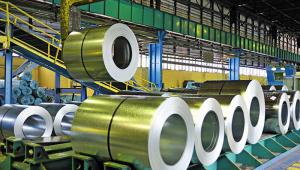Liu Zhongtian, the aluminium company he founded (China Zhongwang Holdings), several US-based companies he controls and two other Chinese nationals were named as defendants in a 24-count indictment unsealed yesterday.
The indictment alleges the aluminium was brought into the US while appearing to be functional pallets to avoid tariffs.
Liu’s various companies imported 2.2 million “pallets” into the US between 2011 and 2014, but none were ever sold.
Instead, the indictment alleges, these “bogus companies” bought the aluminium from China Zhongwang, inflating the company’s sales volume.
Liu and the company allegedly ordered melting facilities to be built and used to reconfigure the pallets “into a form with commercial value”.
China Zhongwang, China’s largest aluminium company, had not responded to a request for comment at the time of writing.
US attorney Nick Hanna said: “This indictment outlines the unscrupulous and anti-competitive practices of a corrupt businessman who defrauded the United States out of $1.8bn in tariffs due on Chinese imports.
“Moreover, the bogus sales of hundreds of millions of dollars of aluminium artificially inflated the value of a publicly traded company, putting at risk investors around the world.
“The rampant criminality described in this case also posed a threat to American industry, livelihoods and investments.”
None of the individuals named in the indictment, including 55-year-old Liu, are believed to be in the US.
Joseph Macias, special agent in charge for Homeland Security Investigations Los Angeles called the charges “extremely serious”.
He added: “Organised assistance and subsidies by foreign nations such as China have a detrimental effect on US production and employment.
“Of greater concern, our national security is jeopardised when domestic industry loses its ability to develop and supply products for US defence and critical infrastructure applications, forcing us to become dependent on unreliable imports from other countries.”













